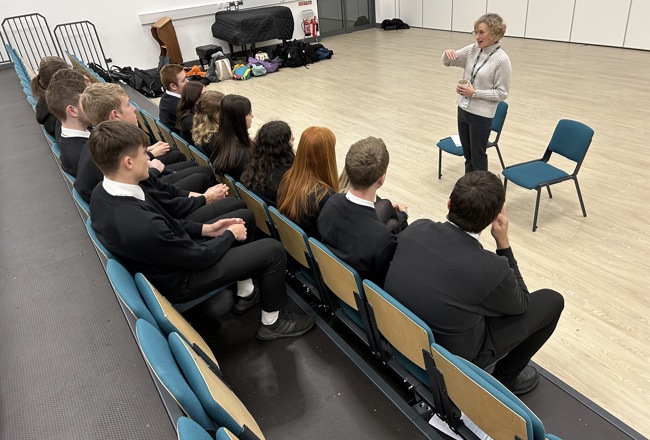- Share icon
- Share on LinkedIn
- Share on Twitter
- Share on Facebook

New research by the Welsh Language Commissioner shows that Welsh speakers between the ages of 16-18 see the language as beneficial for their careers and that opportunities to study in Welsh are very important to them. The vast majority of learners questioned in schools and further education colleges also state that their experience of Welsh-medium or bilingual education is good or very good.
As part of the research, responses were collected from over 1,000 young people with the intention of learning about the views and experiences of post-16 learners in Welsh-medium or bilingual education in schools and further education colleges throughout Wales. The aim was to find out what their reasons were for choosing Welsh-medium education, their opinion about the provision and their intention in terms of their future education and careers.
While the response was generally positive about the ability to receive Welsh language education and the provision available, there was a considerable difference depending on the location of teaching. The research highlights differences between school and college learners, in terms of their perception of their ability in the Welsh language, the language medium of their education and their attitudes towards the importance of the Welsh language.
These results will therefore need to be carefully considered when developing future policies.
According to Welsh Language Commissioner Efa Gruffudd Jones, the results are generally positive,
"This research, with a substantial number of young learners responding, clearly shows the importance of the Welsh language for learners in Wales. The vast majority are proud to be able to speak the language and note that opportunities to study through the medium of Welsh are important when choosing where to study, as well as opportunities to use the Welsh language as part of everyday life at school or college and with their friends.
"However, further consideration needs to be given to learners' reasons for not choosing to study subjects through the medium of Welsh and it is worrying to note the difference between the availability of courses through the medium of Welsh in our colleges compared to our schools.
"The Coleg Cymraeg Cenedlaethol is making substantial efforts to address the improvement of Welsh language provision in the further education colleges, but there is also a need to reinforce the key provision that exists in Welsh-medium and bilingual schools."
The research shows that over 90% of those questioned are proud to be able to speak Welsh and over 80% feel that the Welsh language will help them secure jobs in the future. But the figure falls to just under 60% who feel confident that they will use the Welsh language in their careers.
One of the respondents was Maddie Pritchard, a sixth form student at Ystalyfera comprehensive school and who is youth mayor in Neath Port Talbot council,
"As a youth mayor I set the Welsh language as one of my priorities as I feel that the language is important to us as young people, in terms of our everyday lives, at school and in our communities. I am glad to see the positive aspects that are highlighted in this research as it reflects what I experience day to day.
"But we need to address the reasons why some choose not to study through the Welsh language and respond practically to that.
"It's great that our voices as learners are heard and respected and I hope we have the opportunity to contribute to any similar work in the future."
The research indicates that it will be necessary to carefully consider how to support and build on the provision that is currently in place and to give consideration on a national level as to what the role of Welsh-medium and bilingual schools will be in planning future post-compulsory education.
This should include collaboration at a regional level between schools and further education colleges to ensure that adequate provision is available in order to increase the number of post-16 learners in Welsh-medium education throughout Wales.
The full report can be viewed here.
